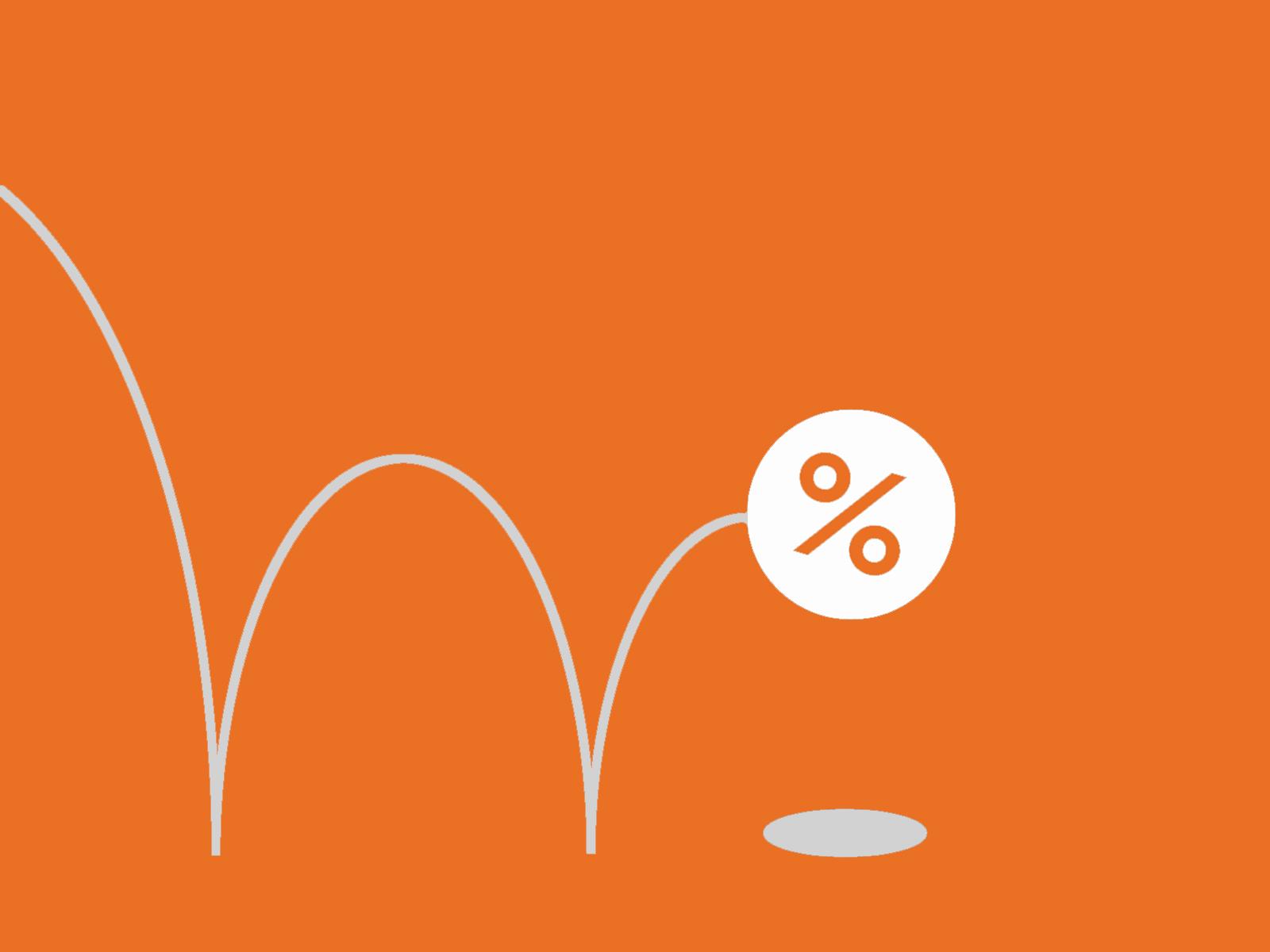Should I get a variable or fixed rate mortgage?
If you’re a homeowner or trying to get into the real estate market, you've had a wild ride over the last few years. Interest rates have increased to a high not seen for more than 20 years. So we're back to the age-old lending debate: should you opt for a fixed or variable rate mortgage?
Where are mortgage rates going now?
The simple answer is no one knows. The Bank of Canada watches inflation numbers closely to determine if it will raise, lower or hold interest rates steady. The target rate for inflation is 2-3%, so if inflation isn't at the target rate, it's safe to assume that more rate increases are possible if inflation continues to rise.
It seems unlikely, however, that rates will substantially go down in the near future.
What are your mortgage options today?
The interest rate on your mortgage is the most significant factor determining your regular mortgage payment. You also need to consider the term of your mortgage (say 5 years) and your amortization (the total number of years you have your mortgage). And if you’re buying a home, the bigger your down payment, the more it reduces the overall size of your mortgage and, thus, your regular payments.
Fixed rate mortgage
Fixed rate means that you're locked into the rate offered when you sign or renew your mortgage, and you'll know that percentage rate is guaranteed until the end of your term. Banks usually offer 1-5 year terms, with 5 year terms traditionally the most popular. Since your interest rate is fixed, your regular payment amount will stay the same for your term.
Pros:
- You know your exact payment amount for a set period.
- It takes the guesswork out of following interest rates for the time you’ve locked in.
- Because you know your fixed monthly payment, it allows you to budget more accurately for your goals.
Cons:
- Historically, fixed rate mortgages usually end up being more costly over time, though that hasn’t always been the case.
- Breaking your mortgage costs more. The penalty is generally three months of interest or the interest rate differential, whichever is higher.
So what does that mean for mortgage holders?
“Anyone who currently has a fixed rate mortgage should budget for current market rates at their next renewal date,” cautions James Laird, Co-CEO of Ratehub.ca. “Households should plan ahead to determine where the money is going to come from to make higher mortgage payments.”
Variable rate mortgage
Variable rate means that the interest rate on your mortgage is not fixed. It fluctuates in relation to the bank's prime rate, which follows the policy rate set by the Bank of Canada. The term (usually 3 or 5 years) and the spread (e.g., bank prime plus or minus .50%) are locked in for a set number of years. And your regular mortgage payment might not change, depending on whether your mortgage is designed with set payments. But the amount of principal or interest you're paying on the mortgage does. You can find out more about the key differences between the two in this fixed vs. variable mortgage rate article.
Pros:
- Historically less costly than a fixed rate (but not always).
- Less expensive to break your contract (generally, three months' interest).
Cons:
- Riskier because your payment fluctuates with interest rates.
- Might be harder on you mentally/emotionally when interest rates are on the rise or uncertain.
A variable rate mortgage example by the numbers
If you currently have a variable rate, you’ve felt the impact of the rate hikes in your bank account. The effect of all rate hikes since March 2022 on variable rate mortgage payments is significant. Here's an example to illustrate:
- In January of 2022, a homeowner who put a 10% down payment on a $748,450* home with a 5 year variable rate of 0.90%**, amortized over 25 years (total mortgage amount of $694,487), would have a monthly mortgage payment of $2,585, including CHMC insurance.
- With July 2023’s Bank of Canada rate increase to 5% (up from a mere 0.25% in January 2022), the homeowner’s variable rate will increase to 5.65%. If their mortgage includes payments that vary according to the rate, their monthly payment would increase to $4,300.
- This means that the impact for the homeowner (as of July 2023) would be $1,715 more per month or $20,580 per year on their mortgage payments, a 66% increase.
*January 2022 average home price in Canada was $748,450 (CREA)
**The best 5 year variable mortgage rate a homebuyer could get in January 2022 according to Ratehub, reflecting the Bank of Canada's key policy rate of 0.25% plus 0.65%.
Variable rate mortgage considerations
Although variable rate mortgages generally win out in the long term (think about a 25-year time frame because that’s the amortization of most mortgages), there are short-term risks, like the steep increases in monthly costs, as we’ve seen over the last few years.
Variable rates these days are also typically starting higher than fixed rates. For example, in August 2023, data from Ratehub.ca showed that the best 5 year variable rate was 5.95%, compared to 5.19% for the best 5 year fixed rate. That’s a difference of more than 75 percentage points!
And when rates get high enough, they hit what's called the trigger rate, which is the point at which a mortgage holder's entire payment (with a fixed payment, variable rate mortgage) goes to interest, and none of it goes to the principal.
"Trigger rates only apply to a variable rate holder with a fixed payment," Laird states. "That's why when the prime rate goes up, their payment amount does not change. Instead, what changes is the amount of their payment that goes towards interest."
“It's all about your risk level and budget,” says Laird. “If you're not going to sleep at night because interest rates are likely to keep climbing in the near term, and you don't have any wiggle room in your budget, locking into a fixed rate may make sense for you."
He goes on to say that this next mortgage decision is only a part of your overall loan. "If you, for example, have a 25-year amortization, you don't need to be right every five years... It has to line up with your comfort level and budget."
Laird adds, "Anyone selecting a variable rate mortgage at the moment would have the conviction that the Bank Of Canada is done hiking rates and that we will see significant rate cuts within the next two years. Otherwise, they should consider selecting a fixed rate mortgage.”
According to The Bank of Canada, in 2022, about one-third of all mortgages were variable rate, which is an increase from 20 percent in 2019 .
Stay on top of your mortgage
Many people sign their mortgage and rarely look at it again. If your mortgage is up for renewal, speak with your lender to see what they can do for you. Be sure to shop around to see what competitive rates exist to give you extra negotiating power with your current lender.
If you're struggling to make your mortgage payments now, or if you think you will be at renewal time, reach out to your lender to discuss your options. With the recent Financial Consumer Agency of Canada (FCAC) guidelines, options are available.
So, what can you do if your variable rate increases more than expected or if you're facing a fixed rate renewal at a much higher cost than you initially signed for?
Here are some money-saving and income-creating ideas to keep in mind:
- Rent out a room in your house.
- Rent out space in your garage.
- Consider selling any extra items around your home.
- Scour your monthly bills to see which purchases you can cut or reduce.
- Talk to your lender about extending your mortgage amortization to reduce your monthly cost.
Read more about ways to pay down a growing debt. And, while you're looking at your finances, consider putting some of this money away in an emergency fund to ensure you're covered in case of a job loss or accident.
Borrower, know thyself
No one has a crystal ball, and as Steve Jobs famously stated, you can only connect the dots looking backwards. Choosing a fixed or variable rate mortgage is a big decision that needs to reflect your risk tolerance, monthly budget, and prediction of where rates may end up in the coming years. Talk to your lender, mortgage broker, or financial professional to help you look at different scenarios and crunch the numbers. You'll also find some handy calculators here.
Uncomplicate your mortgage
Don’t stress over the numbers and calculations – we’re here to help you find the right Mortgage for your needs.

